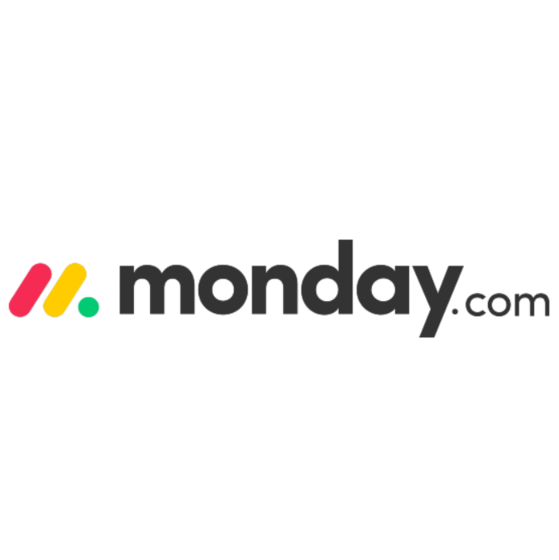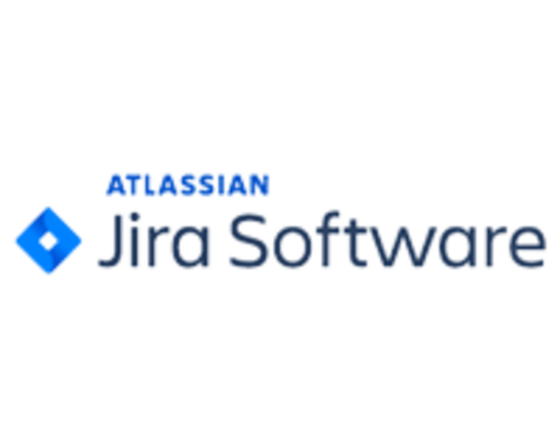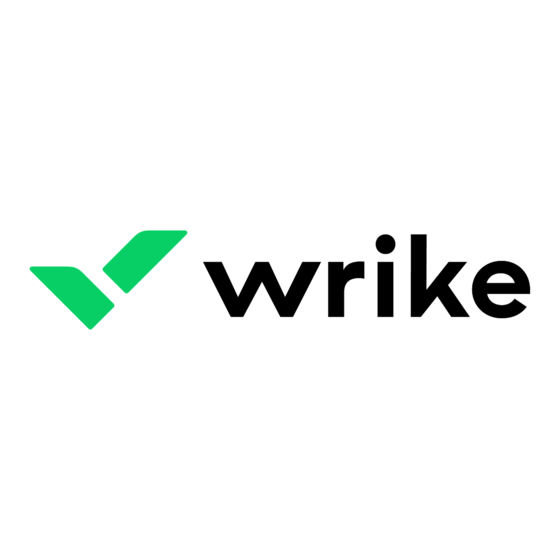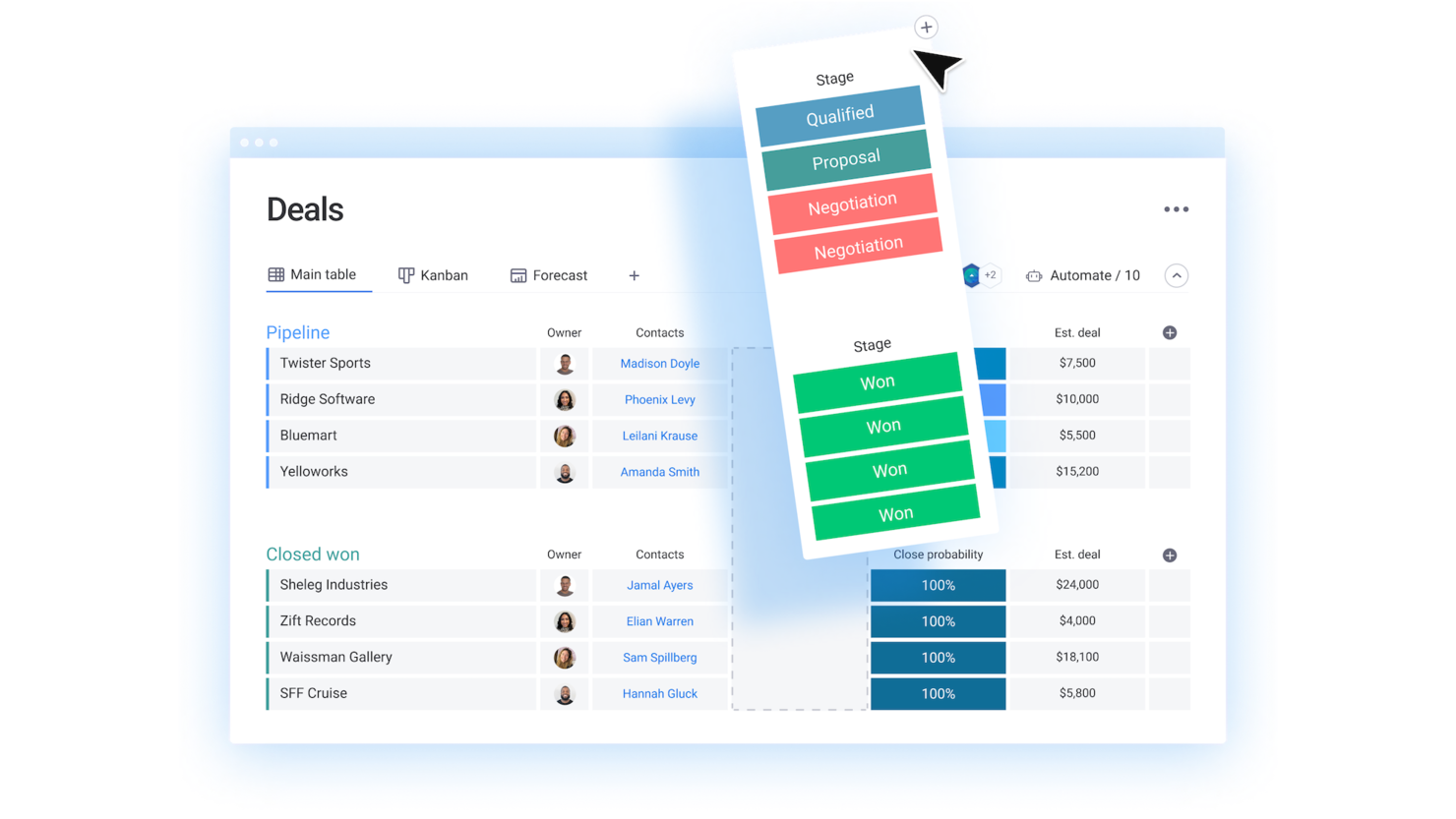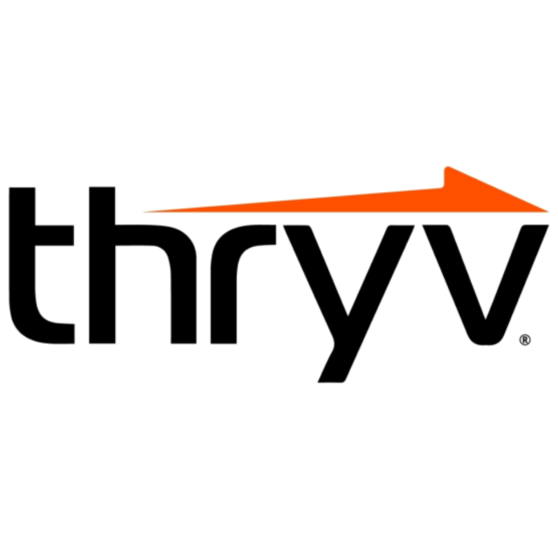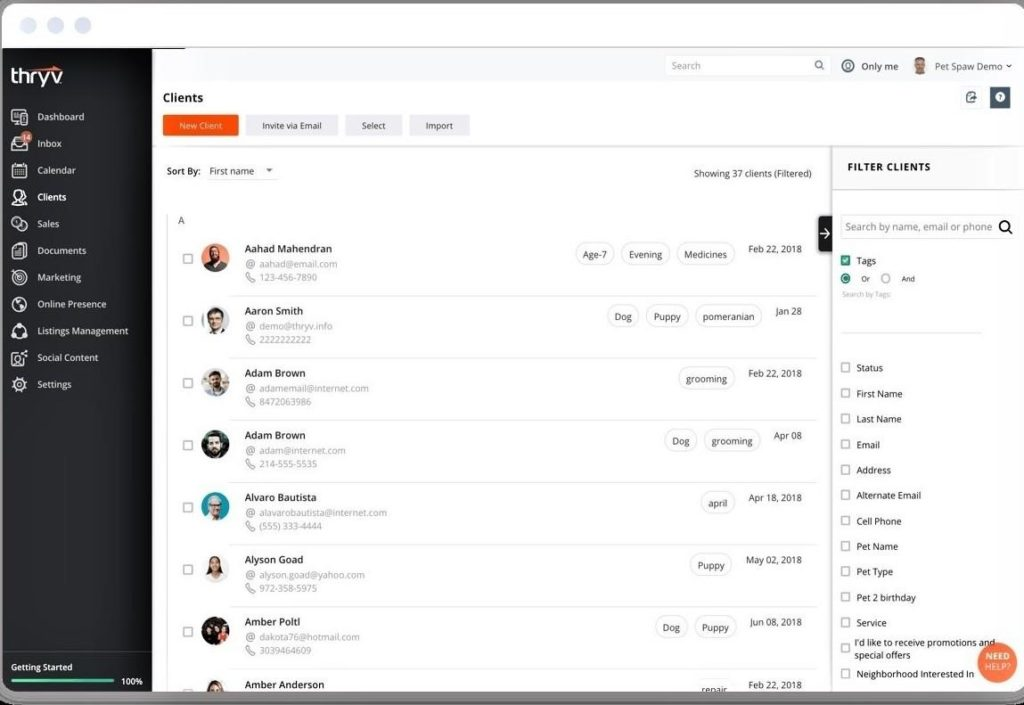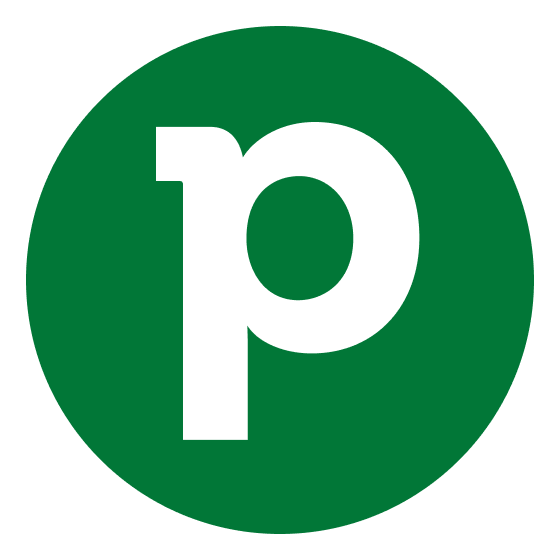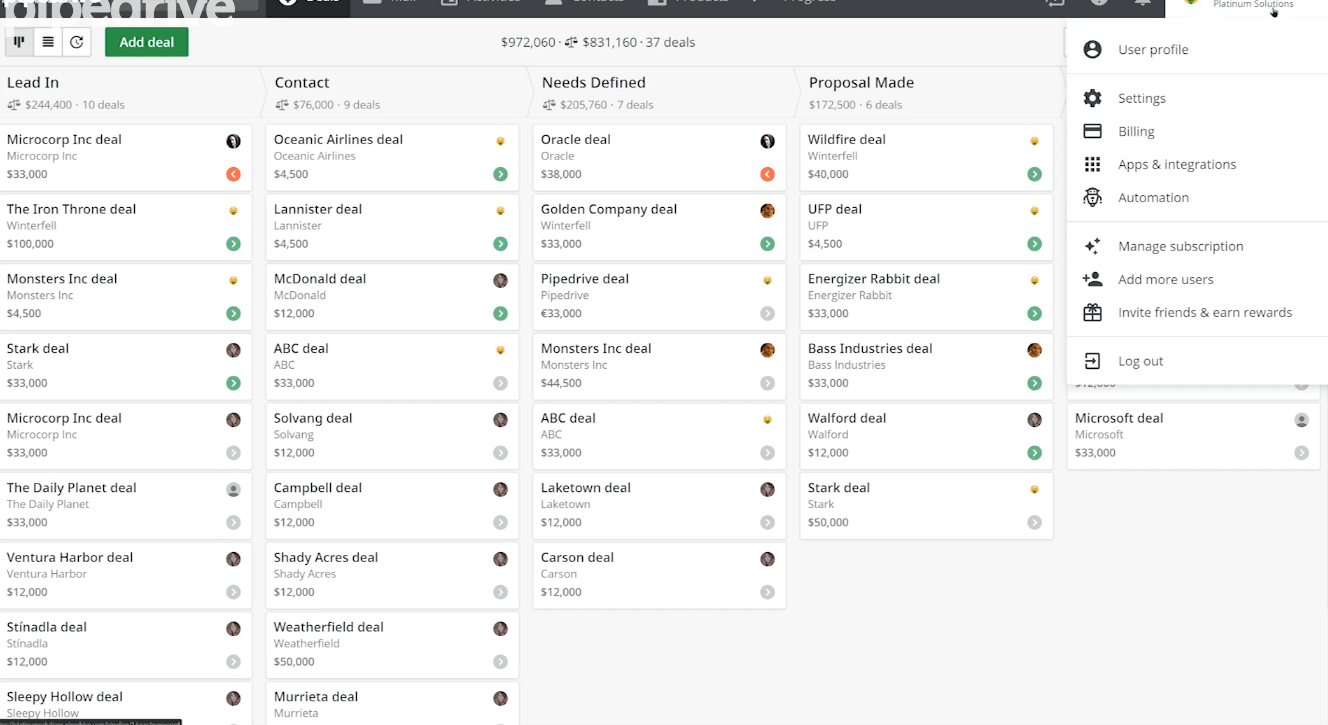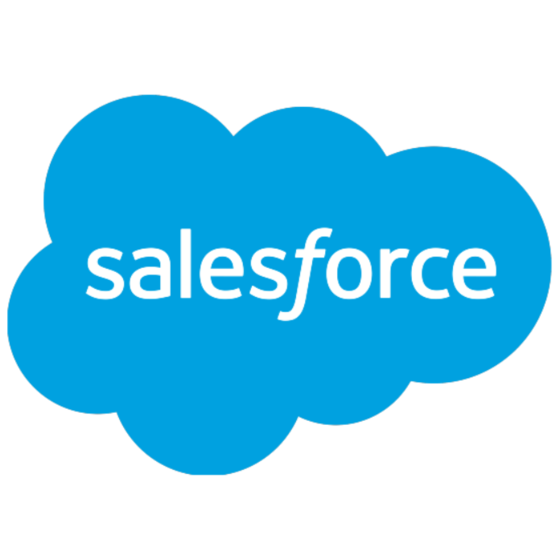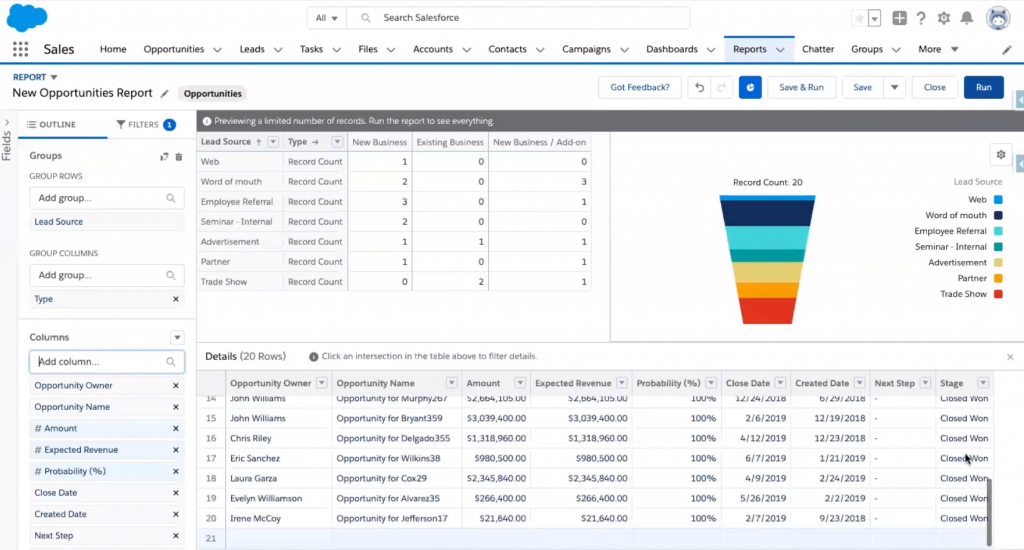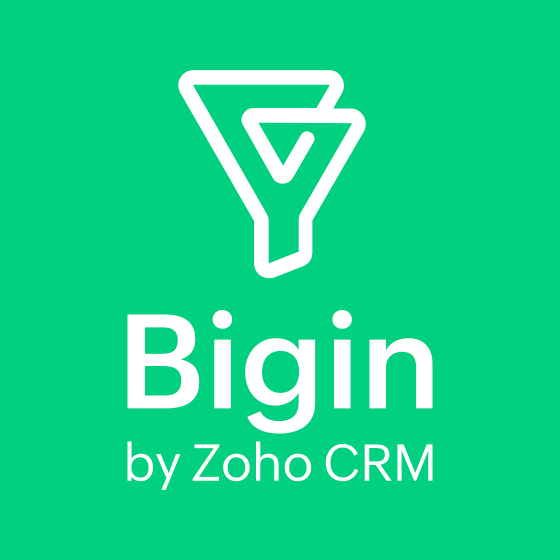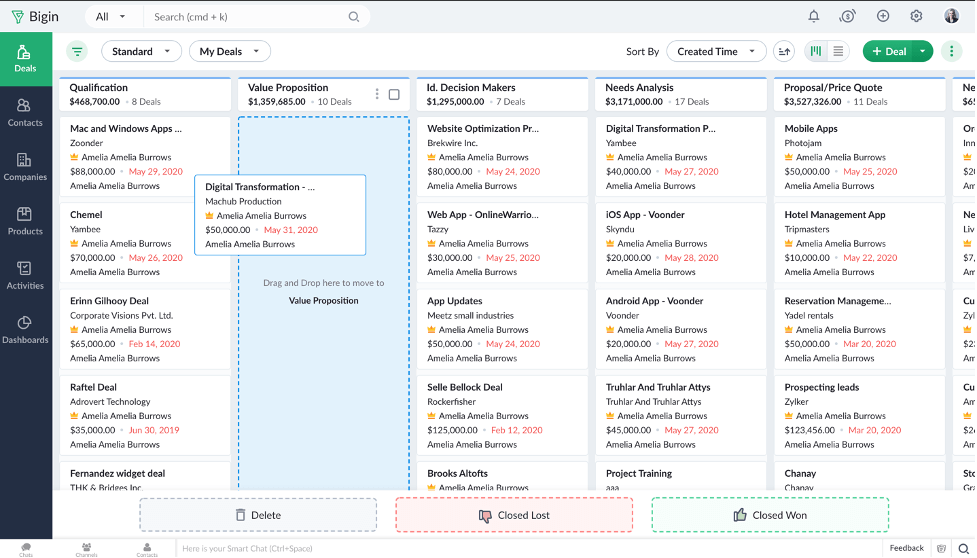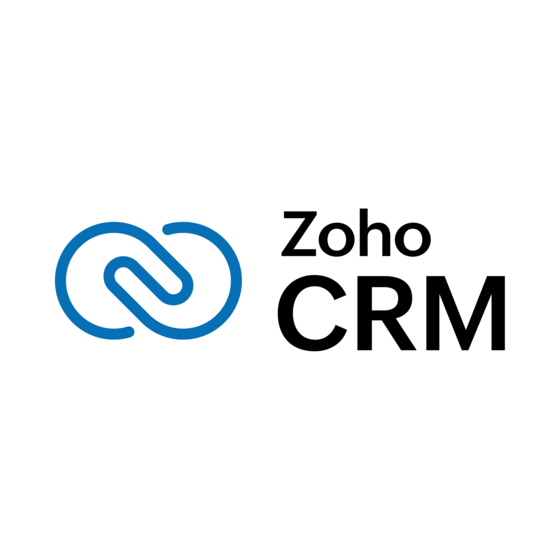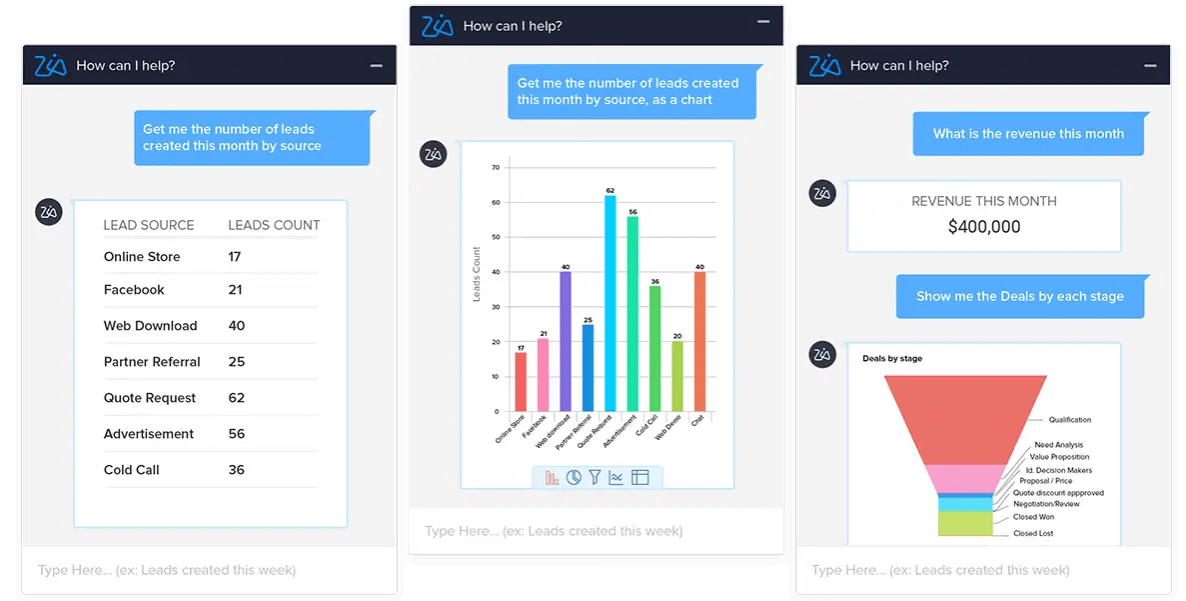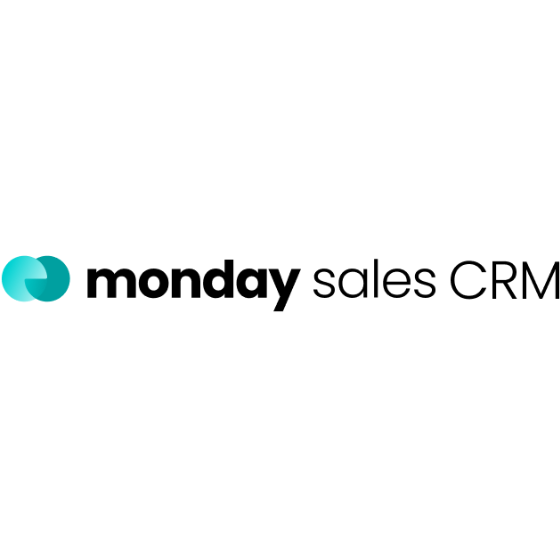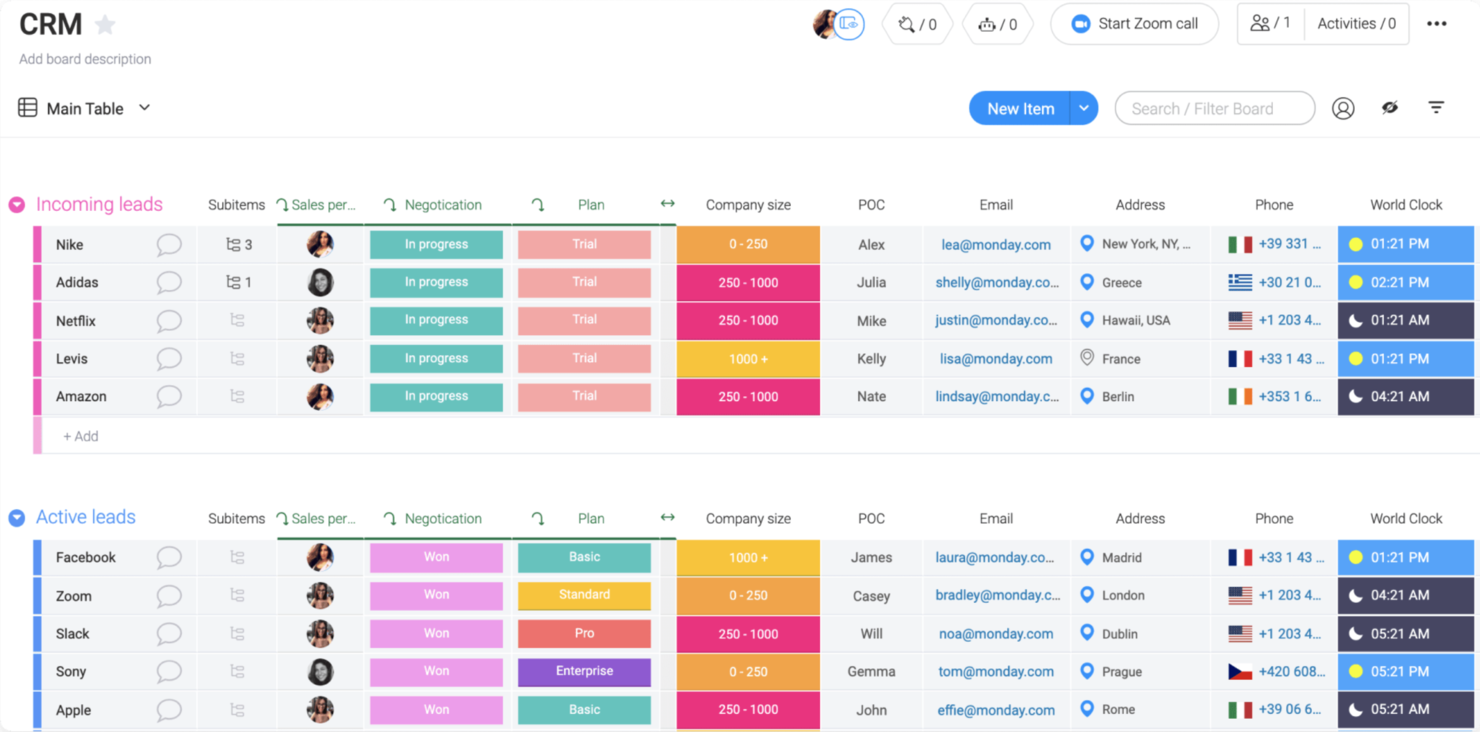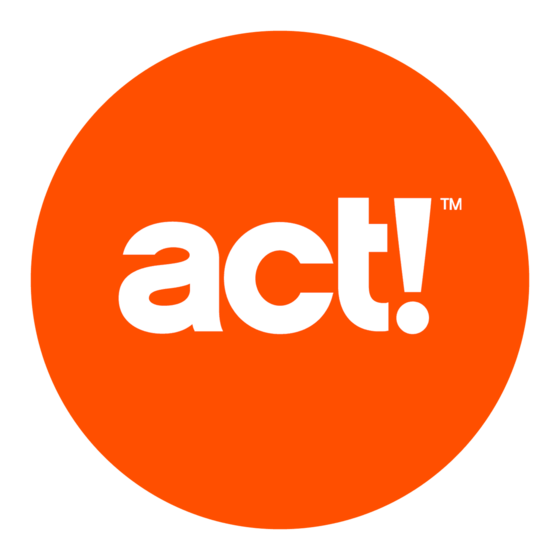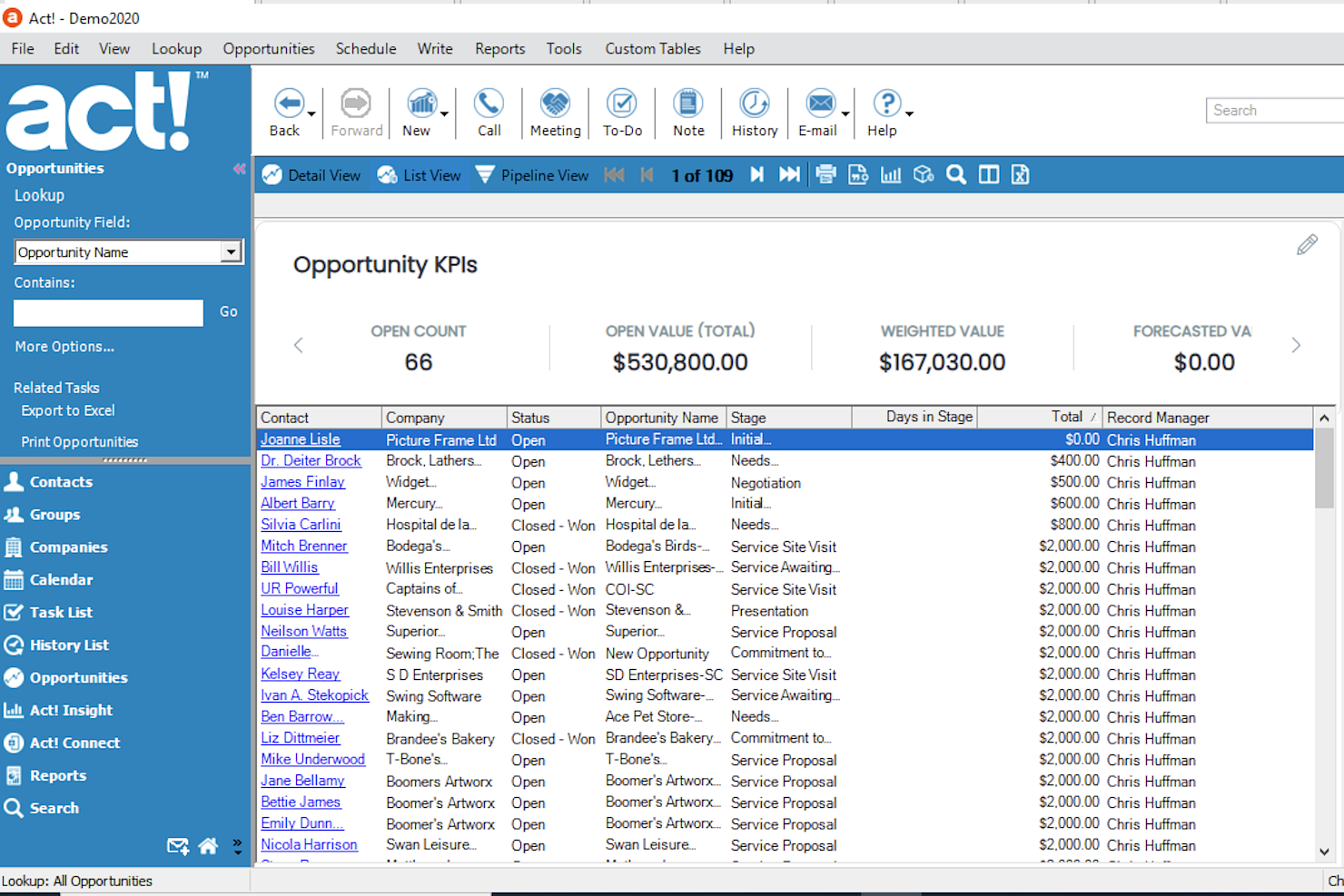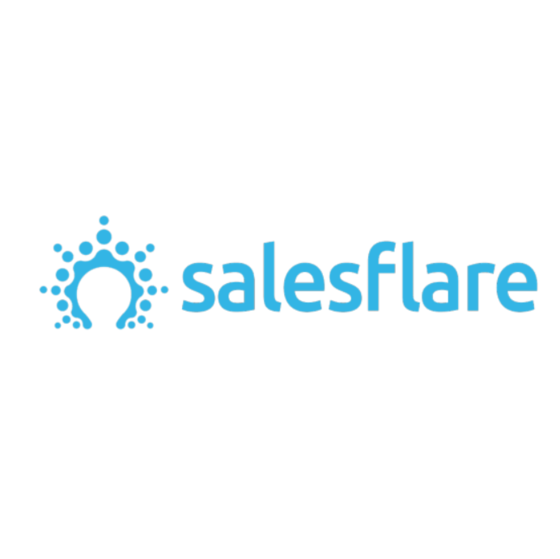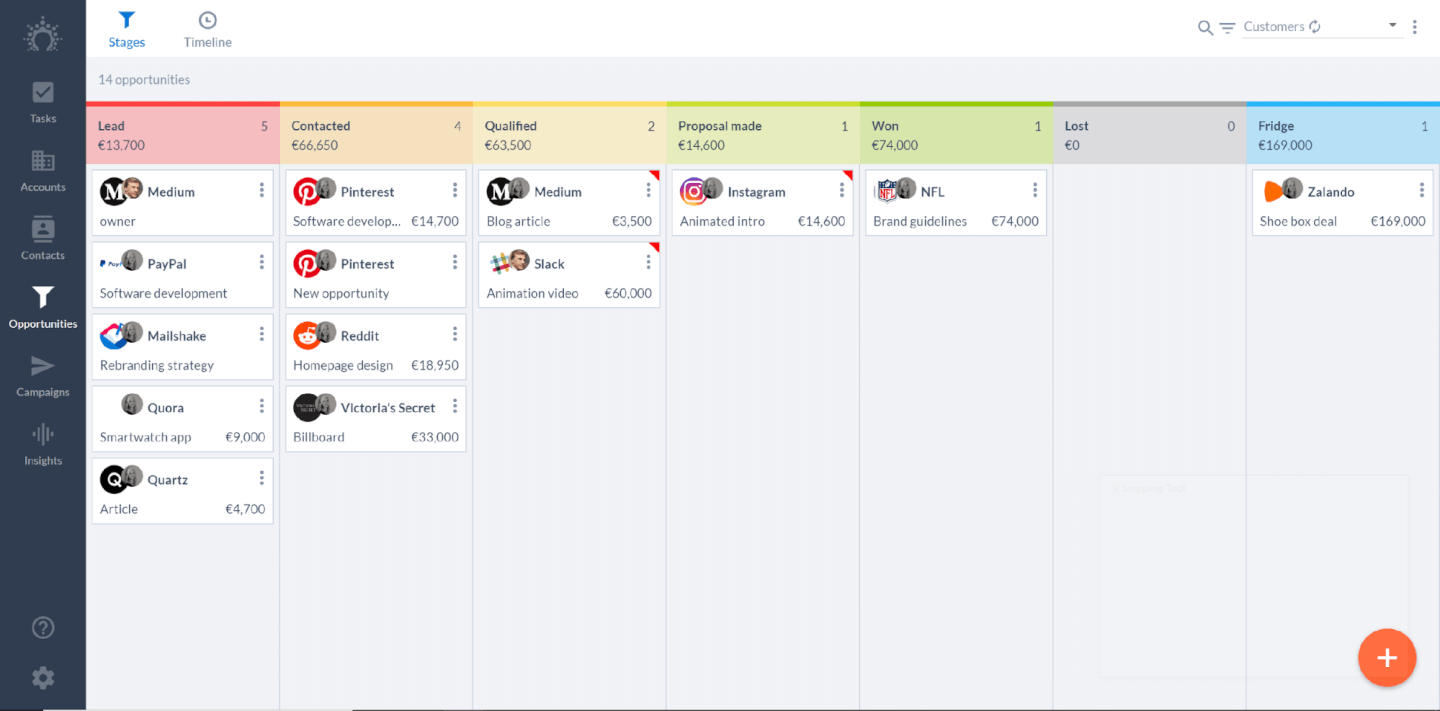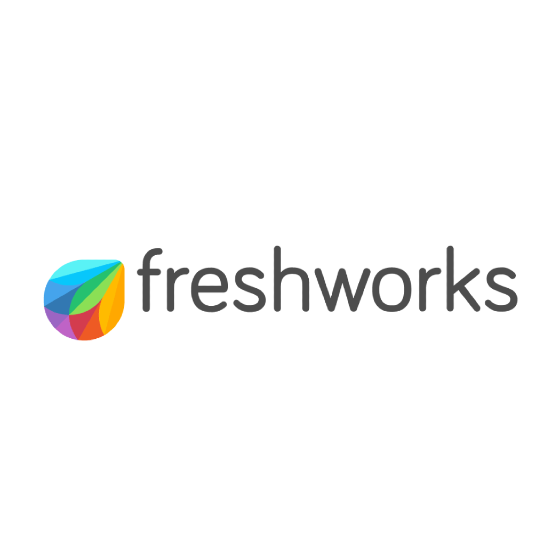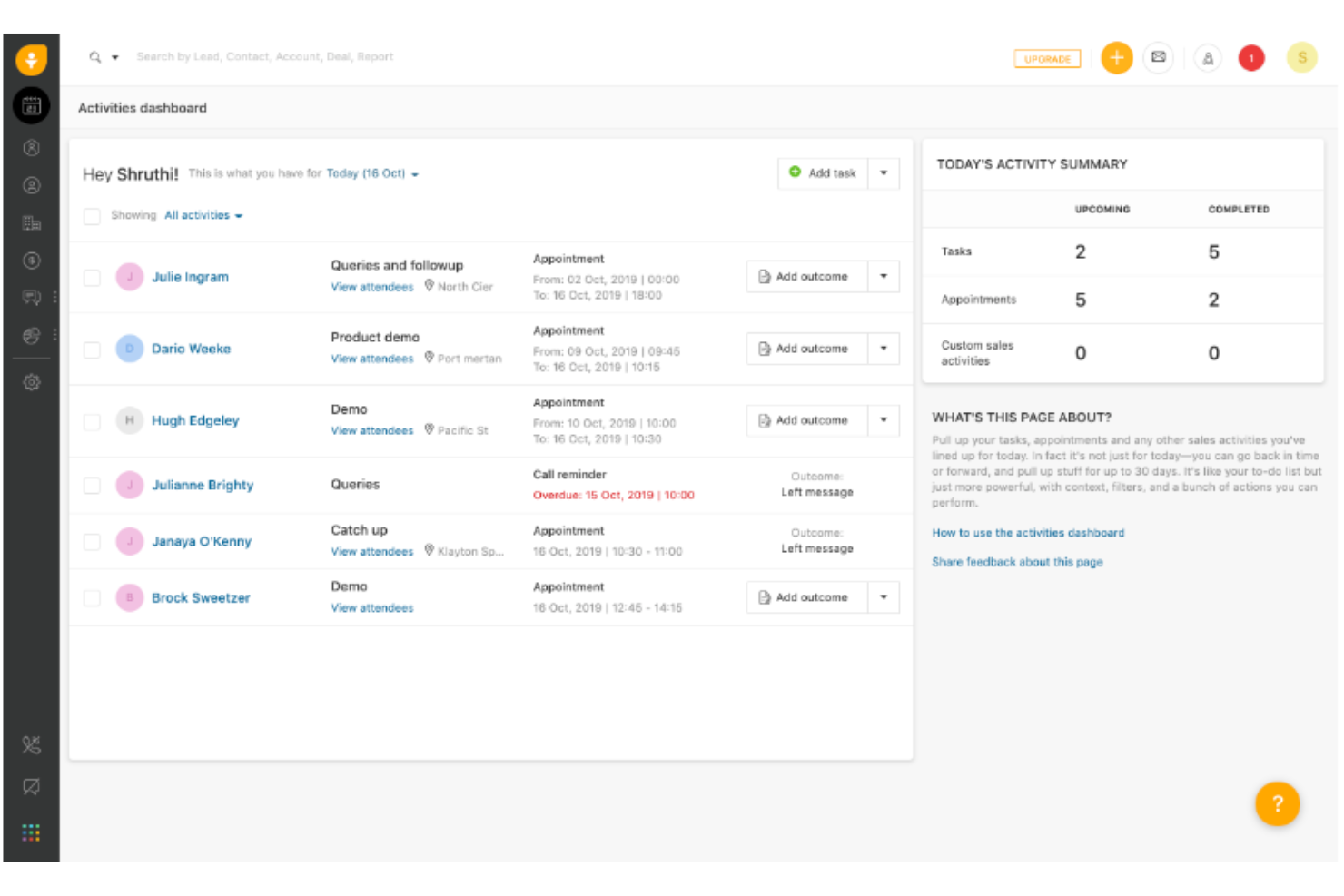10 Best CRMs For Small Business Shortlist
Here's my pick of the 10 best software from the 20 tools reviewed.
Get free help from our project management software advisors to find your match.
There are so many different CRMs for small business so making a shortlist of the best can be tricky. You want to efficiently manage customer information, track interactions, and handle sales processes with software that is tailored to the needs and scale of your small enterprise. I've got you covered! In this post I share from my personal experience managing a variety of small businesses using many different CRMs, and share my picks of the best CRMs for small business.
What Are CRMs For Small Business?
CRM (Customer Relationship Management) software for small businesses is a tool that manages customer information and interactions. It organizes details like contact information, communication history, and sales data, and integrates various customer-related activities like sales, marketing, and customer service in one platform.
The benefits of CRM software for small business include improved customer relations through better understanding and communication, streamlined sales and marketing processes, and efficient organization of customer data. It helps in identifying sales opportunities, saving time by automating routine tasks, and supports targeted marketing efforts. This software is adaptable to business growth, enhancing overall efficiency and customer service quality.
The 10 Best CRM Software For Small Business
It may feel impossible to narrow down the best CRM for small business. However, just take it step by step and investigate the many options available one at a time.
Here are the top CRMs project managers should know:
Monday sales CRM is an all-in-one CRM platform that every small business owner should consider. It enables you to run all of your operations from one central, integrated place. This highly flexible tool excels at giving you high-level overviews of where every deal stands and managing everyday tasks across all teams (including marketing, client projects, and more). Because it's so easy to adapt to different use cases and easily grows with the business, I'd consider it one of the best customer relations tools for startups due to its flexibility, easy rollout, and scaling potential.
Using monday sales CRM, you can get a clear overview of your sales pipeline and prioritize leads according to status or deal value. Along with being a small business CRM tool, monday.com has robust workflow management capabilities that enable you to do everything from setting up automatic reminders, due date notifications, and automatically assigning teammates to new tasks. Use their reports and insights to dig into data for sales, processes, performance, and overall business opportunities other than customer service.
The user interface is colorful and easy to use, but what makes this CRM stand out is its capacity for deep customization. Impressively, most customizations can be set up without the need for a coding specialist – the out-of-the-box automation ‘recipes’ and apps make it a reasonably fast and easy process to tweak the platform for your specific needs without needing to deep-dive into lines of code. monday.com boasts integrations with the likes of Dropbox, Excel, Google Calendar, Google Drive, Integromat, Slack, Trello, and even more through Zapier.
If scheduling meetings between many clients and many company representatives is part of your day-to-day, then monday.com might not be the best tool for you. Viewing appointments in different groups can be cumbersome; you may find you end up with an overwhelming number of boards, and recurring meetings require a third-party app.
monday sales CRM costs from $10/user/month and comes with a free 14-day trial. They offer a free plan for up to 2 users.
Thryv is an all-in-one software solution designed specifically for small businesses to assist in managing their operations. It provides a robust customer relationship management (CRM) system alongside other key tools like a centralized inbox, team chat, appointment scheduling, estimate and invoice creation, and more.
The product is divided into three tiers: the Command Center, which focuses on communication tools; the Business Center, which focuses on customer relationship management; and the Marketing Center, which offers marketing and advertising tools to help grow your business.
The Business Center covers core CRM functionality like a customer database with historical information. But it also provides reputation management tools to monitor your online reviews, and invoicing capabilities to support your client relationship management. This plan tier also comes with unlimited 24/7 support.
Pricing is available upon request, and the Command Center is available completely free.
Pipedrive is a sales management tool for small teams with big ambitions. It visualizes your sales pipeline and helps to make sure important activities and conversations won’t get dropped. Salespeople really like it because it’s easy to use and intuitive. And managers like it because they don’t need to nag their team to use their CRM.
Pipedrive is hailed as being very simple to configure and use, meaning that you don't need advanced tech support to get it up and running. (A relief for SMBs without IT resources.)
Pipedrive has a series of monthly subscriptions with varying degrees of feature support as well as for-purchase add-ons for lead boosting and web visitor tracking. As a small business, you can start with the essentials knowing that it is easy to scale up functionality if your customer base expands. The basic plan is a great place to start. You'll get lead, deal, calendar, and pipeline management tools for a low per-user monthly price.
Pipedrive integrates with other software such as Google Apps, Mailchimp, and Zapier (paid plan required). They also offer a powerful API for those that like to “roll their own' software solutions.
Pipedrive costs from $21.90 per user, per month, and comes with a free 14-day trial.
Salesforce is a leading cloud-based CRM system that helps organizations manage customer data, automate sales processes, and track performance metrics. With its intuitive user interface and comprehensive features, Salesforce makes it easy to manage customer relationships and increase sales productivity. The software is scalable and gives you access to a centralized database containing all the necessary customer information where you can easily analyze trends and gain insights into how best to serve them.
Compared with other CRMs, what sets Salesforce apart is its intuitive user interface and powerful customization options. You can customize almost every aspect of the system—from reports and dashboards to analytics—to meet your needs. Additionally, it uses drag-and-drop functionality for certain tasks, such as customizing reports or creating pipelines.
Another advantage of using Salesforce CRM is its analytics capabilities. The platform provides real-time insights into customer behavior, so you can better understand their needs and preferences. It also allows you to monitor KPIs such as revenue, average deal size, and close rate to get an accurate picture of how well your sales efforts are performing over time.
Overall, Salesforce simplifies your sales process by providing an efficient way to manage leads, track opportunities, close deals quickly, and stay organized throughout the entire process. This improves team efficiency and allows you to focus on increasing sales rather than wasting time on administrative tasks. If this is not enough for you, you can look into Salesforce's AppExchange, where you can add apps that will extend the capability of the software to new horizons.
Best for small and micro businesses using CRM for the first time
Bigin is an easy to use, pipeline-centric CRM from Zoho that is built specifically for small businesses. The tool comes with multiple pipelines for different business operations and allows users to customize pipeline stages.
Bigin provides customizable dashboards to track key business metrics in one place. It also has built-in telephony and email so you can reach out to your prospects without having to switch between applications. Bigin also provides features for automating workflows and routine tasks, and allows users to set reminders for tasks and follow-ups.
The pipeline view is clean and intuitive. Users can track deals by stage, as well as filter contacts and companies. Bigin also offers a fully-featured mobile app.
Bigin integrates with some of the top apps like Google Workspace, MS Office 365, Mailchimp, Zapier, and a host of other popular Zoho tools including Zoho Books (Accounting), Zoho Desk (Customer Service), and Zoho Campaigns (Email Marketing). Bigin also offers an open API to connect to external data sources.
Pricing for Bigin starts at $7/user/month.
Zoho CRM is an omnichannel business management platform that provides its users with complete visibility and control over their sales pipeline and processes. Zoho caters to businesses of all sizes. When it comes to small businesses, Zoho CRM hasn’t scaled its features down. They understand that small businesses need to keep their productivity streamlined to help them focus on delivering stellar customer experiences and building brand loyalty.
Zoho CRM’s lead management software ensures leads find their way into your sales pipeline with smart web forms, a business card scanner, website visitor tracking with live chat, social media integrations, lead scoring, and distribution rules. Zia, Zoho CRM’s AI-powered sales assistant, can predict the best time to contact customers, scans your emails for urgency, and can even pull up relevant statistics or documents when performing searches. You can automate sales processes by assigning rules and mapping modules within or across Zoho products.
Analytical widgets such as charts, KPIs, target meters, and funnels are part of Zoho CRM’s customizable dashboards. Match data across modules and create in-depth reports with filters based on specific criteria, such as the deal stage, name, or time. Export reports as Excel, CSV, or PDF files, and embed dashboards into your website or share them on your Slack channel.
Zoho CRM is one of the 40+ integrated business apps on offer from Zoho. CRM users can work seamlessly with the most popular business apps on the market such as G suite, WordPress, MailChimp, Evernote, and Unbounce, with over 300 integrations. Over 150,000 businesses worldwide trust Zoho CRM, and their software is available in 26 languages.
Zoho CRM starts at $14/user/month, with a free version available to organizations of up to 3 users. Sign up for the 15-day free trial to learn more. You can pay monthly or annually for features of your choice with no hidden costs. Their free edition has a maximum of 3 users, with 24/5 support.
'Monday sales CRM - Best for customizable sales tracking'
monday sales CRM is a fully customizable platform that helps businesses centralize client communication, automate sales processes, and gain a comprehensive overview of deals. It is recognized for its extensive automation capabilities, data visualization tools, and a low-code/no-code environment that supports highly customizable sales pipelines, aiming to improve productivity and manage the sales cycle effectively.
I chose monday sales CRM for small businesses due to the number of unlimited capabilities it offers in its basic plan. In addition, its extensive customization options allow you to tailor the tool to your specific needs. Plus, all of it happens in one place, offering practicality and efficiency for small business operations.
The monday sales CRM tool integrates email sync and tracking, allowing users to monitor email interactions within the platform. It employs AI to assist in composing emails, offers advanced HTML editing for precise email customization, and provides templates for consistent branding. The CRM also supports personalized mass email campaigns and robust activity management, including tracking sales activities and managing team goals. Performance metrics are accessible through custom dashboards and forecasting tools, while data organization features include lead capturing and no-code automations for task automation.
Finally, it offers a range of integrations, including popular tools such as Outlook, Slack, Google Drive, and Trello, which facilitate project management and team collaboration. Additionally, an open API is available for you to build custom connections with your current tech stack.
Act! is a CRM and marketing automation platform tailored for small- and medium-sized businesses that want to manage a central repository of valuable information about their existing customers, prospects, and potential opportunities. It is capable of securing contact information, account history, and customer interactions.
The marketing automation module is designed to facilitate the unique requirements of your business, offering automated management of your email marketing campaigns, customer and employee surveys, landing pages, and other related assets.
Additionally, its customer management module is capable of recording and maintaining comprehensive customer data, which includes their contact details, transaction/interaction history, emails, and relevant documents. It organizes the information and stores them in a central repository for quick and easy access.
Finally, the platform has Android and iOS apps, which enable users to remain connected to the platform and keep track of their contacts, client/customer activities, and communications.
Act! integrates with various third-party solutions that many small businesses may already be using, such as Google Apps, Outlook, and Slack. Act! also offers an open API for custom integrations tailored to specific business requirements.
Pricing for Act! CRM starts at $30 per user/month with Act! Premium Cloud or $40 per user/month if it comes with desktop sync, and $37.50 per user/month for Act! Premium Desktop, the on-premise version. You can access a 14-day free trial to try it out.
Best CRM software for small businesses with automated data entry
Salesflare is a CRM intended for small businesses that can fill out customer information automatically, reducing human error and ensuring more complete and accurate records. If you and your team don't manage to fully and perfectly fill out your CRM system, Salesflare is a great tool for getting your records in order.
Salesflare pulls info from your mailbox, calendar, phone, socials, company databases, email, and web tracking to keep track of customers automatically. This enables you to manage and close more deals, while spending less time on data input.
If you're using Gmail or Outlook, Salesflare neatly brings the CRM into your inbox as a sidebar, so you don't have to switch tabs. You can also use Salesflare to send personal email sequences at scale from your inbox. The tool also has a neat email template feature built in, and it tracks email opens and clicks.
Salesflare starts at $30/user/month and offers a free 30-day trial.
Freshsales is a cloud-based customer relationship management (CRM) software that provides businesses with a platform to manage their sales, marketing, and customer support operations. It features AI-powered lead scoring, predictive analytics for sales forecasting, and customizable workflow automation to facilitate the sales process.
Freshsales offers a unified CRM experience, integrating sales, marketing, and support functionalities to provide a comprehensive view of the customer journey. It is designed to help sales teams engage with prospects effectively, track sales activities, and gain insights into performance through analytics and reporting tools.
The platform additionally offers a visual sales pipeline, built-in phone and email capabilities, and user behavior tracking to help sales teams prioritize and engage with prospects. It also includes reporting and analytics for actionable insights into sales performance.
Freshsales integrates with the entire Freshworks product suite, including Freshdesk, Freshmarketer, Freshchat, Freshconnect, and Freshcaller. It addtionally integrates with MailChimp, HubSpot, Quickbooks, Trello, Magento, Shopify, and Docusign.
Pricing for Freshsales starts at $15/user/month. A 21-day free trial and a free plan are also available. The free option includes features such as Kanban View for Contacts, Accounts, and Deals.
The Best CRMs For Small Business Comparison Chart
Here is a table you can use to compare all the tools we just covered in the overviews.
| Tools | Price | |
|---|---|---|
| monday.com | From $8/user/month (billed annually, min 3 seats) | Website |
| Thryv | Available upon request | Website |
| Pipedrive CRM | From $21.90/user/month | Website |
| Salesforce CRM | From $25/user/month (billed annually) | Website |
| Bigin by Zoho CRM | From $7/user/month | Website |
| Zoho CRM | From $14/user/month | Website |
| monday sales CRM | From $8/user/month (billed annually) | Website |
| Act! | From $30/user/month (billed annually) | Website |
| Salesflare | From $29/user/month (billed annually) | Website |
| Freshsales | From $9/user/month (billed annually) | Website |
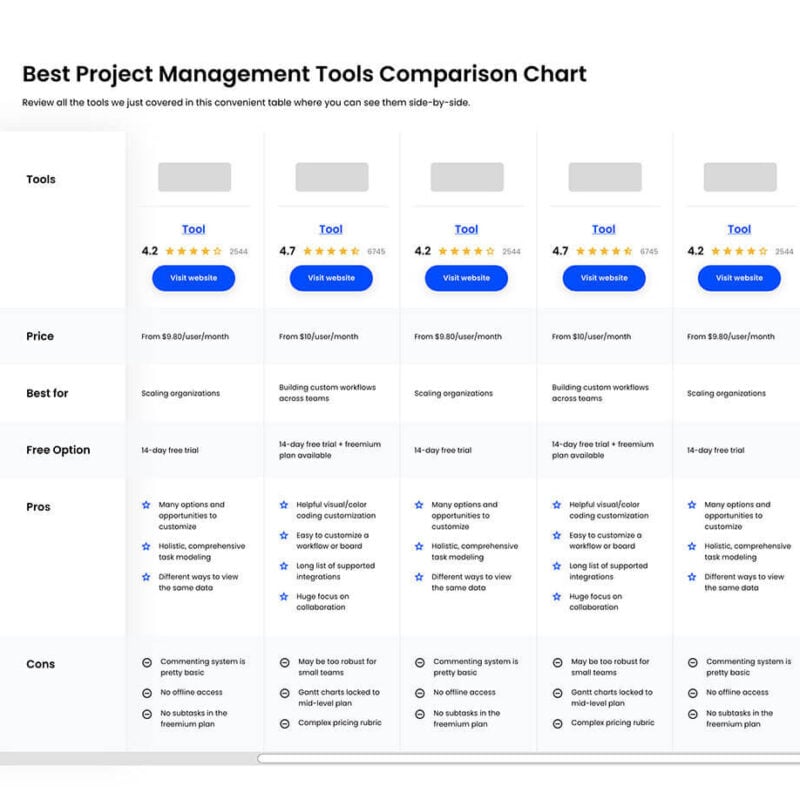
Compare Software Specs Side by Side
Use our comparison chart to review and evaluate software specs side-by-side.
Compare SoftwareOther Small Business CRMs
Being a small business looking for just the right CRM is tough. If none of the above options spoke to your niche and needs, here are a few more to consider:
- EngageBay
Best CRM software for startups and growing businesses
- Agile CRM
Best CRM for agile small businesses and early-stage teams
- Copper
Best CRM software for reporting and analytics
- HoneyBook
Best for independent professionals selling services
- HubSpot
Best CRM with a focus on sales empowerment
- noCRM.io
Best lead management software for SMBs
- Streak
Best CRM software for G Suite users
- Really Simple Systems
Best CRM software for small B2B businesses
- Daylite
Best small business CRM for Mac operating systems
- Ontraport
Best CRM software for customer management automations
How I Picked The Best CRMs For Small Business
After my research, I hand-picked these tools and analyzed them based on this list of criteria.
User Interface (UI)
Does it offer clear, well-designed displays and intuitive navigation? For CRMs, the ability to customize the interface is a top consideration. You should easily edit the fields, pipelines, sales processes, and email templates. Often the ability to customize the interface is only available in higher-level pricing plans.
Usability
CRMs can be complex tools, so I look for simple CRMs like Freshworks’ Freshsales that are user-friendly and have a shallow learning curve. I look at whether it offers tutorials, FAQs, training, and user support through multiple channels.
Integrations
Is it easy to connect with other tools, and does it come with pre-built integrations with business tools for accounting, e-commerce, and project management, as well as other marketing tools? I look at the ways in which the tool expands its functionality.
Pricing
Forget about an enterprise plan. I look at the affordable plans available, the number of team members it includes, and feature lists. Also, I dig deeper to try and find about free trials or free versions of the software you can use to test it out.
Key CRM Features
The following are some of the features to look for in a CRM.
- Contact or customer management: Create and edit contacts and contact information, and easily find them in a searchable CRM database. At a minimum, this feature should integrate with email functions and phone calls.
- Deal management: Create pipelines to track outreach, negotiations, and deals. This feature should be easy to visualize and offer the ability to quickly update leads.
- Interaction tracking: Manage relationships by quickly understanding a contact’s history of interaction with your business. Interaction tracking keeps records of phone calls, meetings, chats, emails—you can log these manually, but many tools automatically generate records.
- Process automation: A small business CRM solution should be able to automate things like your sales workflows, follow-up tasks, and other sales activities.
- Reporting tools: the best CRMs can track performance by looking at the data for activities logged in the system, such as data on sales, revenue, contacts, sales rep activities, and other metrics.
CRMs For Small Business FAQs
Find answers to common questions other people ask about this topic.
What does CRM stand for?
CRM stands for Customer Relationship Management.
What are the types of CRMs?
There are three primary types of CRMs: Operational CRM (for sales, marketing, and service), Analytical CRM (for data entry, collection, and analysis), and Collaborative CRM (sharing information between different teams).
Operational CRM software and analytical CRM software are the most important for small businesses. With a small team, everyone needs access to sales, marketing, and service data, as well as data and analytics. So, as your team grows and you expand into different departments, you might consider investing in a collaborative CRM as well.
What is the difference between CRM and ERP?
CRMs are customer-focused, often looking outside the company for tools to grow, whereas enterprise resource planning (ERPs) work internally to optimize between corporate departments.
ERPs are generally not used by small businesses, depending on the structure of the business.
What are the benefits of CRM for a small business?
The best CRM platform will help your business navigate relationship-building (and maintenance) with both current and potential customers.
Top CRMs will be able to:
- Maintain a client database
- track customer details
- collect feedback from customer-brand interactions
- trace the sales cycle from lead to sale
- assist with marketing campaign development
- assist with social media management
- act as a contact center
However, small businesses may not need all these capabilities to start, but as your business grows, you likely will. Therefore, a CRM solution should be scalable and able to adapt to your business needs over time.
What types of businesses use CRMs?
Large-scale businesses across all industries most likely have a CRM strategy in place. However, small to medium-sized businesses will also find CRM helpful for growing their customer base and building their relationships.
Not looking for CRM software? Check out our other lists of top software to manage projects and work processes:
- CRM is just one part of marketing that you will need to tackle as a startup or small business. You’ll also need a complete marketing strategy, which marketing project management software can help with.
- As you start to make progress, you might want to employ some business intelligence tools to help you collect and plot data in order to hone in on your strengths and weaknesses and push past any obstacles or plateaus.
- Helpdesk software is a great starting point for anyone looking to address their customer base’s needs, questions, and concerns.
- 10 Best Free Workflow Software For Small Teams
How To Choose A CRM: Buyer's Guide
Consider your CRM strategy
A robust CRM strategy is essential for any business nowadays—but particularly so for small businesses who are still looking to build out a loyal and returning customer base, generate positive reviews, and spread their name by word-of-mouth advocacy.
Hence, there are several things that organizations need to figure out when developing a basic CRM plan. Specifically, how to:
- solve disputes before they become a problem
- make customers feel valued and heard
- attract new customers
- retain former customers
- encourage people to return frequently
Think of why you need a CRM plan
Even if a customer has a positive interaction with your business, 60-80% of them do not necessarily return to you again. Therefore, you have to think above and beyond simply giving people a good experience the first time around because even that doesn’t guarantee that they’ll be back.
You should have a plan to keep them coming back, which might include marketing touchpoints like staying “in touch” through email marketing or a social media presence; engaging in events or activities within your community; having your very best people in customer-facing roles so that each transaction is impeccable; listening to all feedback, positive and negative; making sure you are easy to contact by phone, email, and mail; and so on.
So how can you possibly navigate all of this on your own? Small businesses often have tight budgets and limited manpower. That’s why you might be considering CRM software for small businesses.
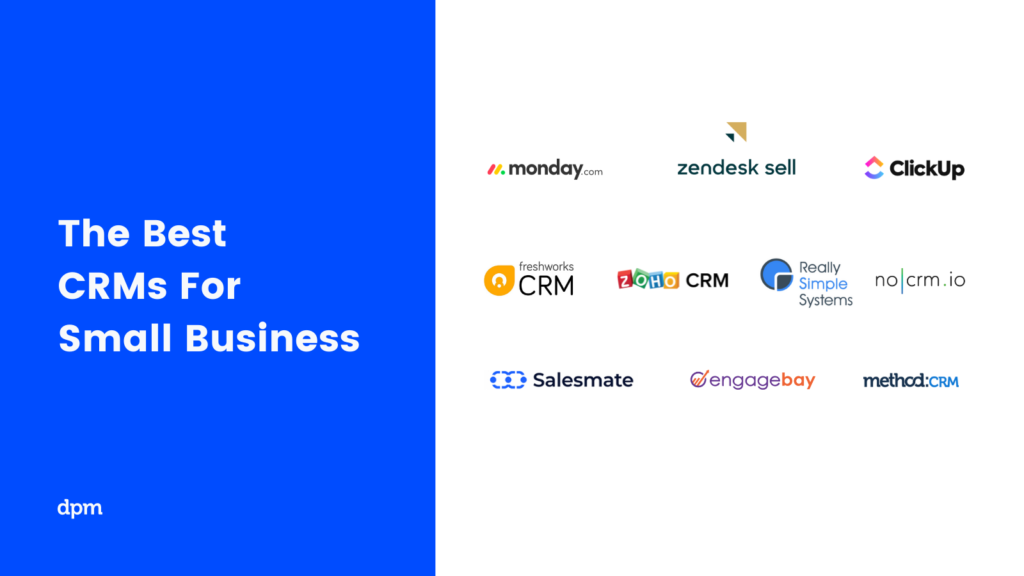
What's Next?
Do you have any experience with CRM software that really wowed you? We’d love to hear your stories on what worked (or didn’t work) for you. Let us know in the comments.
If, instead, you want us to share stuff with you, don't forget to subscribe to our Insider Membership newsletter! You will receive tips, tricks, and all things DPM in your email every week.

